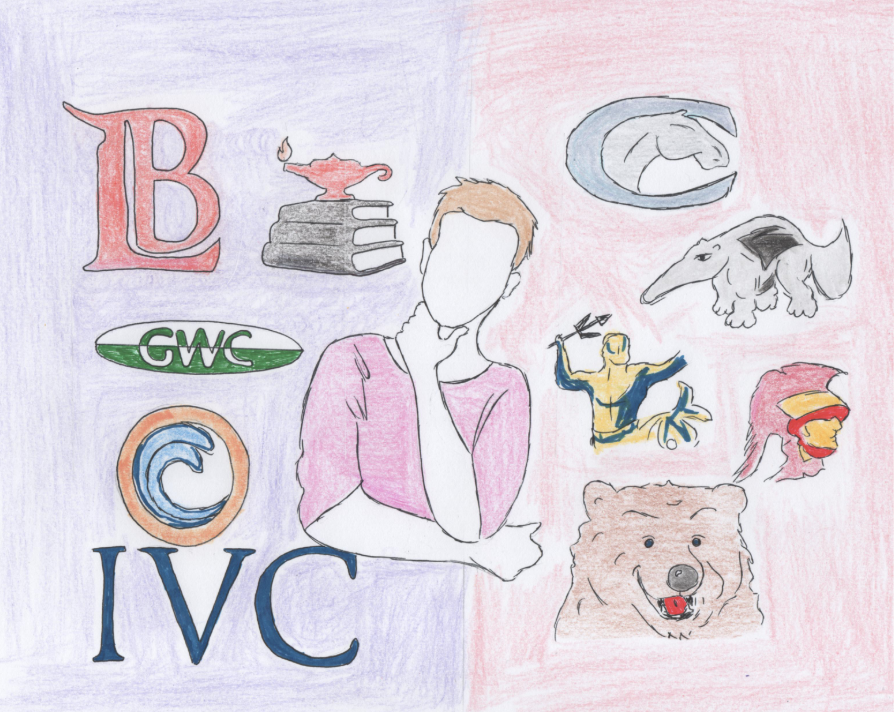
By Kayla Hoang, Staff Writer
Most high school students are stuck focusing on taking Honors and AP classes to appeal themselves to different prestigious colleges and universities. While challenging yourself academically can open many doors, many students overlook the benefits of taking a two-year college before transferring.
For one, traditional four-year colleges are expensive. Paying for college is a big deal, and prices can soar to tens of thousands of dollars. For University of California, Irvine, the tuition is about $14,000 per year even after getting financial aid.With community college, you only have to pay about $1,000-$2,000 per year. After transferring over to university, the price you pay is considerably less than those who attended university all four years. Financial aid can also be applied for community college.
For those who are still unsure of what they should major in, community college is a sensible path to take. It provides students a flexible learning environment, and gives insight into different career paths and interests without wasting time and money at a rigorous four-year university. Also, the courses are better for those students who’d rather ease into their classes instead of jumping straight into hot water in a four-year college.
There are plenty of students who want to explore the STEM field, and community colleges offer that too. There are associate degrees for careers relating to math, science and technology that students can immerse themselves in. There are also plenty of activities, clubs, and programs that students can join to further explore their possible career options.
Smaller class sizes and student population make it easier for students to socialize too. This also gives them an opportunity to connect with their professors and instructors to find a more comfortable learning environment.
Most UC colleges also have programs that link them to local community colleges, too. So if you were to attend a two-year college, you can guarantee your credits will be transferred to earn a bachelor’s degree after your two years at a community. And for those students who don’t want a community college listed on their resume: don’t worry, employers only care about the last two years you spent in college.
Of course, the benefits don’t necessarily mean that everyone should attend community college. For those who are 100% sure what they want to major in, and what career path they want to take, then it’s more likely a four-year college is better, as long as you know the different opportunities and pathways you can take outside of universities.





